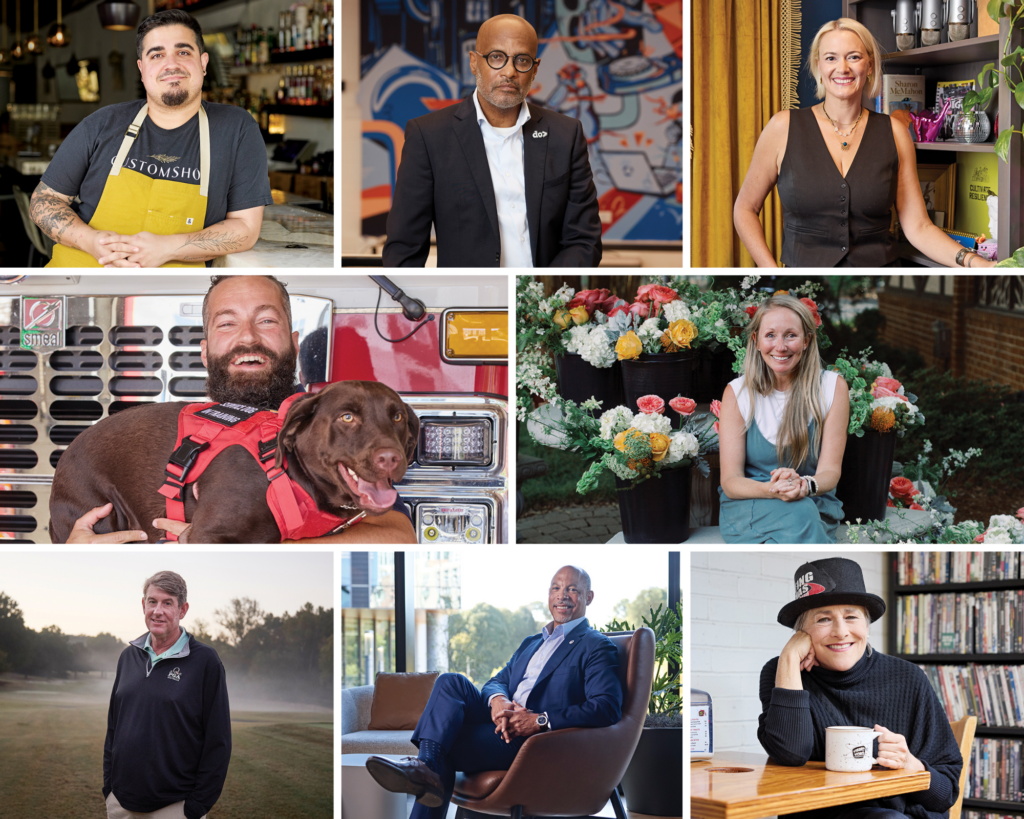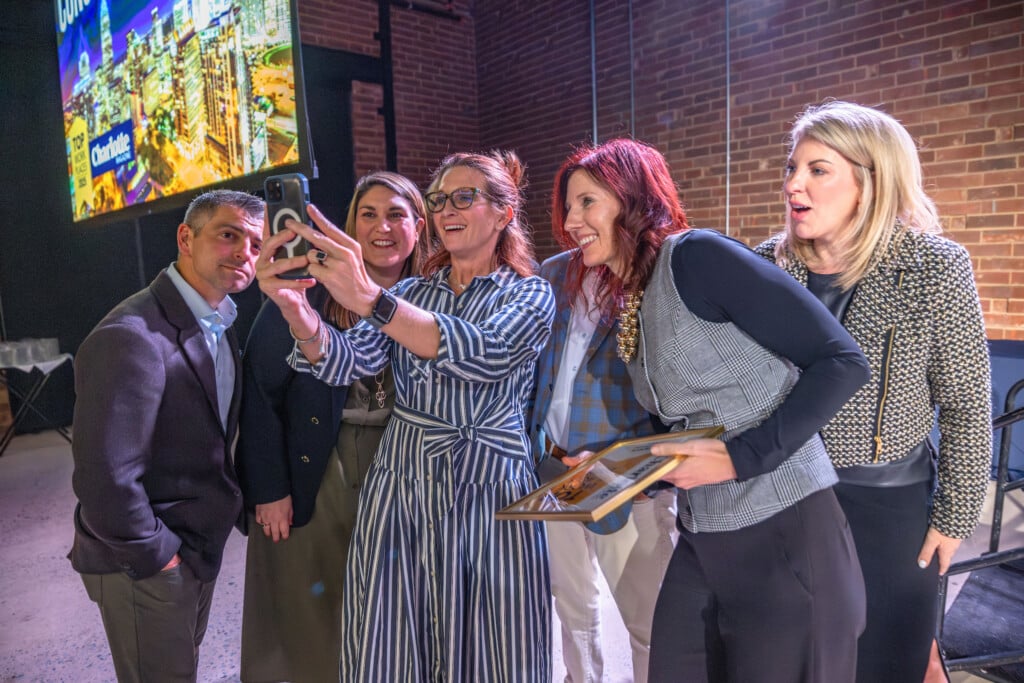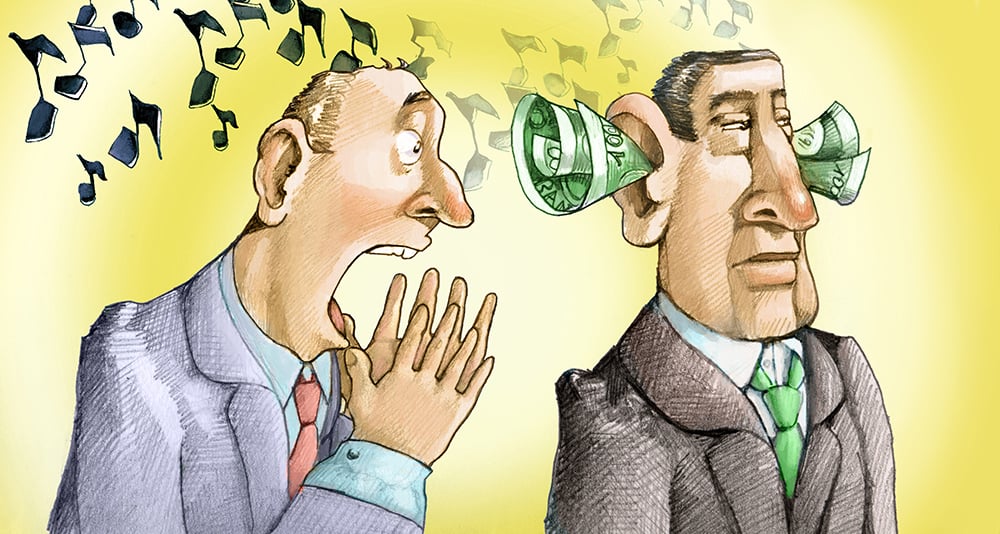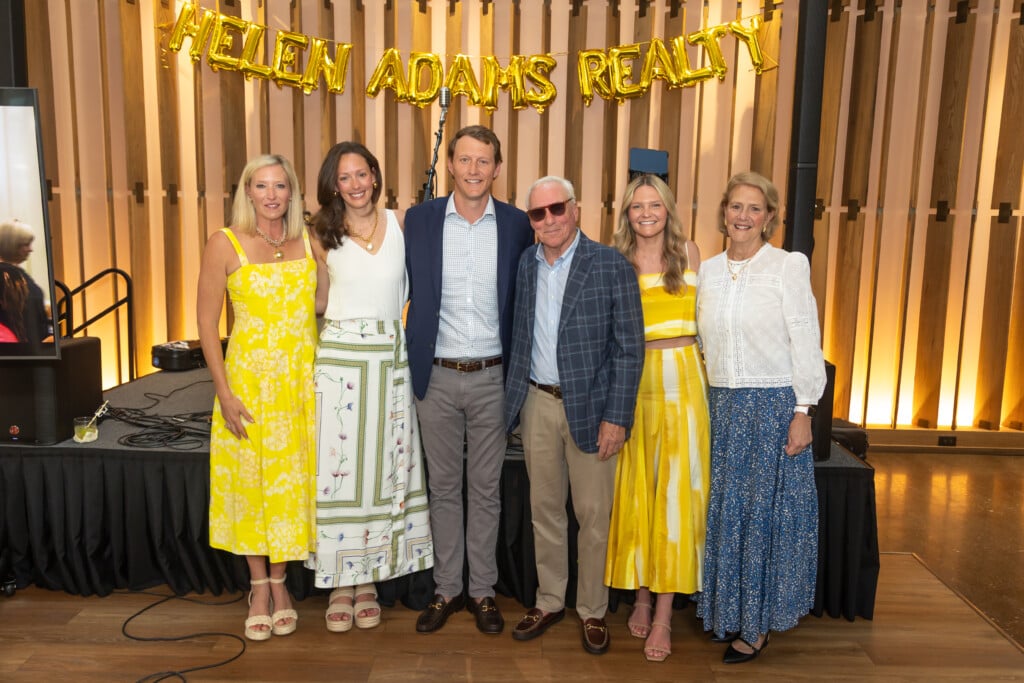This American Airlines Pilot is Often Mistaken For a Flight Attendant
Anna Julian Lucke has endured a few bumpy rides to achieve what few women in aviation have
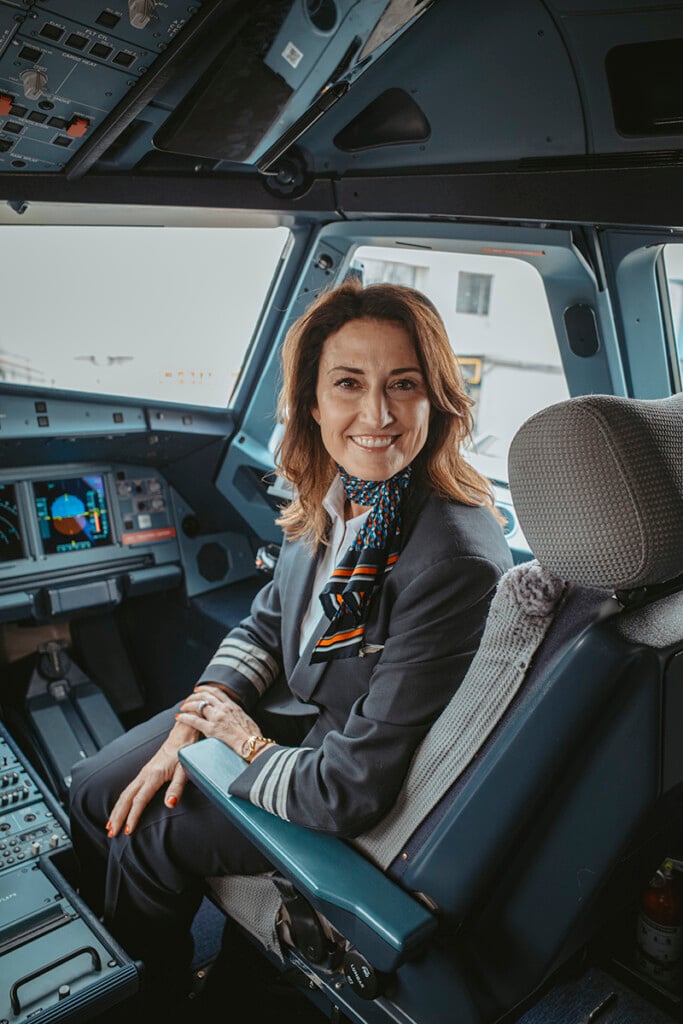
Anna Julian Lucke doesn’t have a professional headshot or corporate profile, and her digital footprint is miniscule. She’s exceedingly modest about her chosen profession, but when most people learn what she does for a living, the response is generally something to the effect of, “That is so cool.”
Lucke (pronounced “Luke-ee”), 47, is a first officer for American Airlines. It’s even cooler when you consider this: Women make up just 5% of the world’s airline pilots. That percentage is growing—the number of female pilots in the U.S. has doubled in the last decade—but gender equality among flight deck crew members, the highest-paid positions in aviation, is still low compared to other male-dominated fields like science, technology, and engineering.
Growing up in Salisbury, Lucke never gave that much thought. Her mom was a flight attendant, and her stepdad was a pilot, so air travel was usually front of mind. “Their schedules were great,” Lucke says. “When you’re working, you’re working. But when you’re off, you’re off. My stepdad wasn’t going to meetings or jumping on calls. He was just flying somewhere, walking around, having great food, and coming home. There was so much freedom in that.”
As a biology major at UNC Chapel Hill, Lucke continued to feel the pull toward aviation and decided to take flying lessons her junior year. She was hooked. She completed her degree, then enrolled at the North American Institute of Aviation in Conway, South Carolina. She was scheduled to take her instrument check ride, a standard flight test administered by the Federal Aviation Administration (FAA), on Sept. 11, 2001—but all air travel came to a halt. “The era of flying changed after 9/11,” she says. “The whole industry slept for a little bit so it could get its bearings.”
Lucke eventually passed the test and spent the early 2000s flying for regional airlines, working her way up the chain of command. She was often mistaken for a flight attendant and rarely flew alongside another woman. But she claimed her space on the flight deck and kept her focus on becoming a captain.
In 2008, Lucke took a job with US Airways, which had twice filed for bankruptcy in the wake of 9/11 and was on the verge of financial collapse. A few months later, she was furloughed. Lucke had to put her aviation dreams on hold, find a sales job, and start at the bottom. Two years later, US Airways merged with American Airlines and hired her back. Since then, she says, it’s been “a normal trajectory.”
Today, she and her husband, Pat, are parents to a 13-year-old daughter, Harper, and 11-year-old son, Jack. Pat is a pilot for Delta, so most weeks are a balancing act with their flight schedules. It’s why Lucke has opted not to upgrade to captain for now—but the position is within reach. “There’s no way any other career would have brought all of these experiences to me,” she says. “I had no idea what was ahead of me for 10 years. So ‘keep going’ had to be said a lot. But I have no regrets whatsoever. That’s a huge thing to be able to say.”
Here’s Lucke in her own words, edited for length and clarity.
I was a very gregarious, go-get-’em-type child. I was a great student and an athlete, so my parents had no reason to meddle. I always craved independence, and they nurtured that. I never felt any limitations—and that’s been a big part of flying. Why not me?
My stepdad was a pilot for Piedmont Airlines, then US Airways, which is now American Airlines. My mom met him as a flight attendant. So we traveled a lot. It was such a real, palpable excitement for me every time I traveled.
In high school, I was moving toward the medical profession, thinking I’d be a doctor. So often, you land on something that sounds good, but there wasn’t a lot of introspection on my part, so I just continued on that journey.
I was a biology major at Chapel Hill, so I was going down the science path, then I moved to pre-dental. I started taking dental-prep courses and was doing observations with local dentists. At the same time, my stepdad was based in Charlotte, so he would fly overseas, spend a day there, and fly back. That was his whole week. As I’m seeing that, I thought, That’s really cool. Let’s just see what would happen if I veered off this path.
During my junior year of college, I took some flying lessons in Chapel Hill. And it was a feeling. But by then, I’d already done so much of the biology major, so I completed it. And it did help me. I learned how to think and analyze.
I started flight school in 2000 in Conway, South Carolina. It took me about a year to get all of my ratings and certificates. I was scheduled to take a flight instructor instrument check ride on 9/11, which basically allows you to fly around in the clouds and teach other pilots. So that got canceled, and we were shut down for a week. It was like COVID—it changed everything. Eventually I took that check ride, but they weren’t going to need that many people to teach, so I was fortunate to get one of those slots. I did that for three years.
In 2004, I got my first job in Nashville. Then within a year, I got another job in Houston flying regional, 50- to 75-seat jets. In 2007, I was interviewing at US Airways—and I had no support on that. A lot of people said, “What are you doing? They’re about to go under.” But I got one piece of advice early on, which was always take your first major airline offer.
In 2008, I was hired at US Airways. Shortly after that, fuel prices went bananas, and the FAA lifted the age restriction on pilot retirement from 60 to 65 because they saw a possible shortage. So they really didn’t need me. I saw the furlough coming.
My husband was at Northwest (Airlines) at the time. Fortunately, Delta swooped in, and they merged, so he kept his job while I was furloughed. There were a lot of sleepless nights that year. I had developed an identity as a pilot at that point. Now I’m looking around thinking, Did I make the wrong decision?
I was really doubting myself. But I had a great degree from a great school, so I thought, I’ll just get a job in medical sales. Except nobody was calling me (laughs). So maybe that was too ambitious. I thought, I’ll do pharmaceutical sales. Same thing. Crickets. I was talking to a headhunter, and she said, “If you can sell copiers and cars, you can sell anything.” So I got a job with Toshiba selling copiers. I swallowed my pride and started at the bottom. I still shudder a little bit when I drive by the offices I had to cold-call.
Once I got some sales experience, another friend connected me with a wine sales job, so I sold wine to restaurants uptown. That was a lot more fun, and I learned so much about wine. Travel and restaurants all go together, so that was right up my alley. Then US Airways started calling people back. I went back in 2010.

“I do a lot of island turns,” Lucke says. “I flew to Punta Cana and back on Monday. Friday it was St. Croix. But it’s not as glamorous as it sounds. You’re always trying to get your head right with the time change.”
With my science background, I find a lot of similarities between the human body and the airplane. When you’re talking fuel or hydraulics, it’s like the cellular systems that create organs in the body. I had to learn mechanics in a way I never had before. Airplanes all seem to get faster as you progress in this career. Managing that speed as you come in to land is a learning curve.
I had an engine failure a few years ago. I was somewhere over Pittsburgh, flying to Charlotte. We were just flying along, fat, dumb, and happy, then, bam! The nose veered, and the engine was gone. Our engine has good systems, and it’s recoverable, so you shouldn’t have to do much work. But that wasn’t happening. We weren’t getting it back. We had to land in Pittsburgh with one engine. There’s the startle factor, then you go right into the procedures you know. That’s never happened since. The things that are scariest are the things we can’t control, like the weather or something like 9/11. It’s anything that doesn’t have to do with the airplane.
There are pilots I’ve worked with who, if they could say it out loud, they’d say I got the job because I’m female. When I fly with men closer to my age, there’s less of that. I think about some of the real pioneers in the ’70s and what that must have been like. A lot of accidents were happening because people weren’t speaking up. What the captain said went. Luckily, that’s changed.
There’s a lot of focus on communication in the cockpit. My feedback when I’m in training is I’m good at communication, and I think that’s true with a lot of females. Women are great communicators. I’m not afraid to tell somebody if I think something’s not going the way it should. We all make mistakes, so it’s important to be able to say, “Hey, I don’t think you meant to do that.”
For years, I was mistaken for a flight attendant. It still happens sometimes. I can count on two hands the amount of other female pilots I’ve flown with in my 20-year career. One of my mentors I was flying with once had recently gotten a job as a chief pilot here in Charlotte. Her male counterpart was going on and on about how she only got it because she was a woman. I was really mad about that.
The pilots’ roles change every flight, so if the captain flies down, I fly back. The pilot who’s monitoring sees 70% more than the person flying the plane. We have to be really aware of how we talk to each other and how we organize a situation if something comes up.
Your date of hire is everything in aviation—it’s all about seniority. You can grease every landing ever, and it doesn’t matter. They’re not going to give you a raise for that. That’s what we’re supposed to do. My husband always says it’s luck and timing. If I stay (with American Airlines) until I’m 65, I’ll be No. 10 out of 15,000 pilots. That’ll be pretty amazing.
I’m currently a first officer. I was able to upgrade to domestic captain years ago, but I chose not to because of the kids. I typically travel 11 days a month. I still remember how hard it was when my mom left, so I was very sensitive to that with my kids. I knew it would sting when they were young. It’s another reason I’ve held off on captain.
The older they get, the more my kids are aware of the gender thing. Since both of their parents are pilots, it was nothing to them when they were little. Now they have a greater appreciation for it.
The trips we get to take are priceless. (My kids) have a lot of stamps on their passports. My daughter has traveled enough now that she can plan a vacation and pick out the Airbnbs, and she’s amazing at subway systems. She did it in London last year. That’s so cool to see.
If I could say one thing to my 20-something self? Follow the dream. Jump. It’s been a journey, and I’m always pinching myself. When I’m working, I’m all in, but as soon as I walk off that airplane, that’s it. That’s my life. I’m so grateful that those other jobs allowed me to see that.
